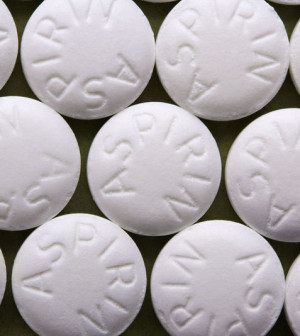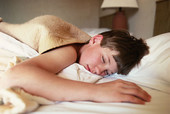- The Best Time of Day to Drink Bone Broth to Maximize Health Benefits
- 8 Ways to Increase Dopamine Naturally
- 7 Best Breads for Maintaining Stable Blood Sugar
- Gelatin vs. Collagen: Which is Best for Skin, Nails, and Joints?
- The Long-Term Effects of Daily Turmeric Supplements on Liver Health
- Could Your Grocery Store Meat Be Causing Recurring UTIs?
- Are You Making This Expensive Thermostat Error This Winter?
- Recognizing the Signs of Hypothyroidism
- 10 Strategies to Overcome Insomnia
- Could Artificial Sweeteners Be Aging the Brain Faster?
Kids’ Concussion Symptoms Can Linger Long After Injury: Study


Kids who suffer a concussion can have lingering effects long after the physical symptoms fade away, U.S. researchers report.
In a study from the emergency medicine division at Boston Children’s Hospital, doctors found that, while headache, dizziness and blurry vision can appear right after a concussion, emotional and mental symptoms, such as irritability and frustration, show up much later and stay longer.
“Patients and their families should expect the physical symptoms that they experience after a head injury to get better over the next few weeks, but that emotional symptoms may come on later, even as the physical symptoms subside,” said lead researcher Dr. Matthew Eisenberg.
“Only by knowing what symptoms can be expected after a concussion can we help reassure patients and families that what they experience is normal, know when to seek additional help, and make sure that children are taking appropriate precautions in regard to school and sports to achieve a full recovery,” Eisenberg added.
For the study, published online May 12 and in the June print issue of Pediatrics, Eisenberg’s team used questionnaires to keep track of 235 children and young adults, aged 11 to 22, who suffered a concussion and went to a pediatric emergency department.
The patients were followed for three months after their injury, or until all their symptoms were gone. During that time they were asked about symptoms, sports activity, and school and athletic performance.
The most common physical symptoms were headache, dizziness and fatigue, which tended to start right after the injury and got better over time. Most also had mental symptoms, such as difficulty concentrating and taking longer to think, the researchers found.
While most children recovered within two weeks after the injury, 25 percent still had headache a month after their injury, the investigators found.
In addition, more than 20 percent suffered from fatigue, and nearly 20 percent reported taking longer to think for a month after their concussion.
For many, emotional symptoms — such as frustration and irritability — were not as common right after the injury, but developed later, the study authors noted.
Dr. John Kuluz, director of traumatic brain injury and neurorehabilitation at Miami Children’s Hospital, said, “It takes longer than people think to fully recover from a concussion. My experience is that kids who still have symptoms two weeks after a concussion are going to have a very hard time, and it’s going to be a struggle to get them to the point where they have no symptoms.”
In addition to physical and mental rest, Kuluz believes in treating the symptoms. He prescribes ibuprofen and other medications to relieve headache, and melatonin and other drugs to help patients sleep.
Kuluz also recommends physical therapy to help children recover. Therapy includes working on balance and helping with any vision problems. “Therapy also helps you find your threshold for exertion. Many of my kids find that very helpful,” he said.
He also recommends keeping children out of school for a couple of days after the injury and then gradually letting them get back to a normal routine.
“Keeping a child out of school for too long will have a negative effect on their mental health. They will become anxious, they’ll become irritable, because they worry about falling behind,” he said. “But if they go back too soon without teachers being aware of their condition, they can fail, and it happens a lot.”
Kuluz tries to get kids back to school for half a day or as much as they can tolerate until they get better. Children should not start sports again until all symptoms have disappeared and then only gradually, he added.
If a child still has symptoms two or three days after a concussion, Kuluz recommends seeing a doctor who is experienced in dealing with concussions or going to a concussion clinic.
More information
For more on concussion, visit the U.S. National Library of Medicine.
Source: HealthDay
Copyright © 2026 HealthDay. All rights reserved.










